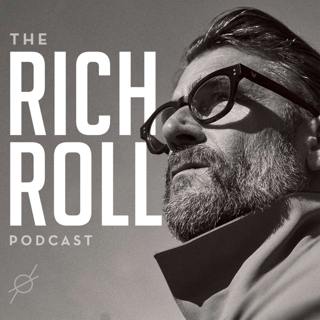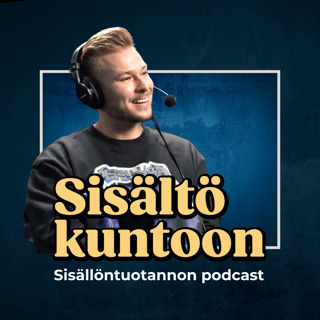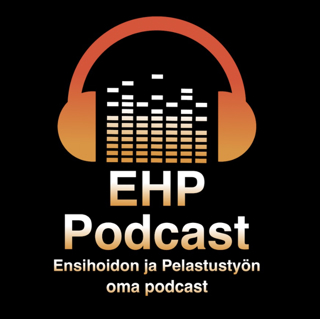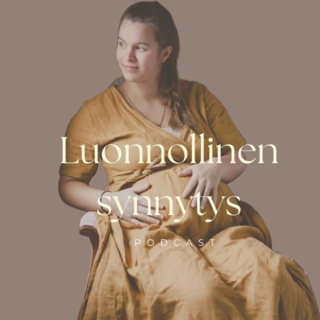
Freeze Solo: Colin O’Brady Is The First to Cross Antarctica Alone & Unassisted
Life has taught me one essential truth: the human spirit is boundless. Just when you think we’ve reached the absolute pinnacle of what’s physically possible, someone performs a feat so utterly mind-bending you're left breathless. The skies of perception part. Blanketed in awe, we’re compelled to re-evaluate our own personal capabilities. And humanity is left just a little bit better than it was before. This is the sensation I experience when I spend time with Colin O'Brady – a former Yale swimmer turned professional triathlete turned elite adventure athlete with 4 breathtaking world records to his name. Colin's latest jaw-dropping feat of athletic prowess, stunning endurance and sheer human will was becoming the first person in history to cross the continent of Antarctica solo, unsupported and unaided. Under nothing but his own power, Colin pulled a 300lb sled 932 miles in just 54 days across the coldest, windiest, most remote continent on earth from the Atlantic to the Pacific via the South Pole. Colin first appeared on the podcast in December of 2015 (RRP 207) — a deep dive into his unique upbringing on a commune; how he survived an almost lethal burn accident that left him unlikely to walk again; his phoenix like transformation into a professional ITU triathlete and Olympic hopeful; and how he morphed into a mountaineer with the audacity to attempt incomprehensible feats of adventure athleticism. After conquering the Explorer’s Grand Slam, a challenge that encompassed scaling the highest mountain on each of the seven continents and treks to both the North and South Poles, Colin returned to the podcast in June of 2016 (RRP 235). Among the 44 who have completed the EGS, only 2 have done it under a year. Not only was Colin the youngest person to successfully complete this most prestigious undertaking, he crushed the world record by a stunning 53-day margin, completing it in a mere 139 days. Along the way, he simultaneously broke the 7 Summits world record by two days. Today he returns to share his most remarkable achievement to date, a freeze solo adventure he dubbed the Impossible First. It’s a jaw-dropping story you might have seen unfold in real time on Colin’s Instagram (@colinobrady) or in the stellar 360-degree New York Times coverage penned by my friend (and former podcast guest) Adam Skolnick. Uncovering the why behind the expedition, we explore how he dealt with the gear, solitude, -80F temps, and 30 mph headwinds. He explains why to sweat is to die. We discuss his battle against the elements and British Army Captain Louis Rudd — the legendary explorer who also set off the same day with the same goal in his heart. We talk about Colin’s final day 77-mile, 32-hour superhuman push to the finish. And Colin explains how a phone call with a certain musician changed his entire perception on who he is. But mostly this is about a man who uses endurance and adventure as art that speaks to the heart and soul of the human experience. The visually inclined can watch our entire conversation on YouTube at bit.ly/colinobrady439 (please subscribe!) Enjoy! Rich
7 Touko 20192h 27min

Lisa Damour, PhD On Parenting Teens Under Pressure
Today’s expedition takes us into the beautifully mysterious world of parenting, with a specific lens on navigating the perplexing vicissitudes of the teenage girl — one of the most beguiling and opaque creatures I've encountered in my 52 years. I have been a parent and step-parent for two decades. Along the way, I successfully helped raise two young boys. Sure, I made many mistakes. But I also did a few things right. Today they are both amazing young men. And yet somehow that experience failed to adequately prepare me for the rather unique challenges I face guiding a teenage daughter towards adulthood — a joy that has at times brought me to my knees. To elevate my parenting game, I began searching for greater insight into the idiosyncratic psyche of the female adolescent. That quest continuously referred me to one notable expert: Lisa Damour, PhD. A teen whisperer par excellence, Lisa is a Yale educated psychotherapist with a doctorate in Clinical Psychology from the University of Michigan who specializes in education and child development. But she is best known for her two New York Times bestselling books — Untangled: Guiding Teenage Girls Through the Seven Transitions into Adulthood*; and her newest release, Under Pressure: Confronting the Epidemic of Stress and Anxiety in Girls*. The parent of two teenage girls herself, Lisa writes the monthly Adolescence column for the New York Times. In addition to her private consulting and psychotherapy practice, she is a regular contributor to CBS News, speaks internationally, is a Senior Advisor to the Schubert Center for Child Studies at Case Western Reserve University, and serves as the Executive Director of Laurel School’s Center for Research on Girls. This is all a long way of saying that when it comes to adolescents and teens, Lisa knows her shit. Today's conversation deconstructs the particular emotional overload and unique social pressures young people face – everything from sex and drugs to body image, grades, navigating social media and everything in between. By better understanding the nature of these dynamics, and how they specifically impact our young ones, we glean insight into how to optimally parent through them. In addition, we discuss the recent astronomical rise in stress and anxiety in young girls — what accounts for it, and what it means. We also cover the common mistakes many parents (myself included) often make. We delve deep into the importance of open communication and how to foster it. Finally, Lisa imparts a myriad of strategies to optimally pilot the healthy developmental transitions that specifically girls (but also boys) undergo as they mature into grownups so that we, as parents, can help cultivate self-esteem and self-efficacy in the next generation under our charge. If you are a parent of young humans trying to make the right moves — or just want to better understand how young people think and why they behave as they do — then this episode is appointment listening. Lisa’s books have been instrumental in improving how I parent my daughters, so this is a meeting of great personal significance I have been hotly awaiting for some time. They don’t call her the teen whisperer for nothing. Enjoy! Rich
30 Huhti 20192h 17min

Optimizing Spring Training: Chris Hauth Returns
Making his latest appearance in our ongoing Coach’s Corner series is none other than Chris Hauth, one of the world’s most respected endurance and ultra-endurance coaches. A sub-9 hour Ironman, Chris (@AIMPCoach) is a former professional triathlete, Age Group Ironman World Champion, and 2-time Olympic Swimmer. In 2006, Chris won the Ironman Coeur D’Alene and went on to be the first American amateur & 4th overall American at the Ironman World Championships in Kona, Hawaii. When he’s not training and racing, Chris hosts the Weekly Word Podcast and runs AIMP Coaching, mentoring a wide spectrum of athletes ranging from elite professionals — including Ironman and Western States top finishers, Ultraman winners and Olympic Trials qualifiers — to first time half-marathoners. Whether you are an elite athlete or just starting out, Chris knows how to get the best out of athletes the right way. A long-time friend and mentor as much as a coach, I have been under Chris’ tutelage since 2008, during which time he deftly guided me through three Ultraman World Championships (’08, ’09 & ’11), EPIC5 in 2010 and the Ötillö Swimrun World Championships in 2017, an event we raced together as a team. I could have never achieved the level of athletic success I have enjoyed without Chris’ deft counsel, so it is with pleasure that I share more of his wisdom with you today. As we put the cold winter months behind us, today's conversation focuses on balancing your fitness goals against life's demands as we welcome warmer days. As always, Chris drops knowledge applicable whether you are a professional athlete or a cubicle warrior just looking to improve the quality of your day to day. Specific topics discussed include: * optimizing fitness as we transition from winter to spring; * scheduling training in balance with real-life pressures and expectations; * when to hold back & how to avoid doing too much; * experimenting with race nutrition during training; * tips to develop the nuances of swimming technique; and * finding joy in the training process For those in the northern hemisphere, Spring is officially here. Whether you've fallen off track or been on top of your game, it’s the perfect time to once again check-in with the coach. I sincerely hope you enjoy the exchange. If you're new to the show, please check out Chris' previous RRP appearances in episodes 21, 256, 297, 30... Enjoy! Rich
26 Huhti 20191h 32min

David Sinclair On Extending Human Lifespan & The Science Behind Aging
Everybody grows old. Everyone dies. But is this scientific fact? Or is it merely a story based on history and our current understanding of biology? What if we instead consider aging as a disease? This begs the question: what is the cure? Welcome to the mind of David Sinclair, PhD, one of the world’s leading scientific authorities on longevity, aging and how to slow its effects. A professor in the Department of Genetics at Harvard Medical School and co-Director of the Paul F. Glenn Center for the Biological Mechanisms of Aging, David obtained his Ph.D. in Molecular Genetics at the University of New South Wales, Sydney in 1995 and worked as a postdoctoral researcher at M.I.T. where, among other things, he co-discovered the cause of aging for yeast. The co-founder of several biotechnology companies, David is also co-founder and co-chief editor of the journal Aging. His work has been featured in a variety of books, documentaries, and media, including 60 Minutes, Nightline and NOVA. He is an inventor on 35 patents, has been lauded as one of the Top 100 Australian Innovators, and made TIME magazine’s list of the 100 most influential people in the world. In addition, David is the author of the forthcoming book, Lifespan: The Revolutionary Science of Why We Age — and Why We Don't Have To* which hits bookstores on Sept. 10 and is currently available for pre-order here*. This is an absolutely fascinating conversation on all things human lifespan, aging and longevity. We begin with the specific scientific mechanisms that contribute to biological degeneration. Then we dive deep into the hard science David and his peers are examining to better understand what contributes to aging and how to prevent it. According to David, the prospect of living to 200+ is not a pipe dream, but a very possible reality. If humans could indeed double lifespan, how would this change how you live? And what does this mean for the future of humanity? This conversation travels deep into the scientific weeds. Perfect for the geeks among us. But it's also grounded in practical takeaways for all of us — because David's work isn't just about extending lifespan. It's about learning how to live as vibrantly and energetically as possible for as long as possible. It’s an honor and a privilege this brilliant man’s pioneering work and wisdom with you today. Plus he's a lovely guy. If you enjoyed my episode with Dr. Valter Longo (RRP #367), a fellow brilliant warrior in the longevity space, then I’m fairly confident you’re going to love this one. So break out that pen and paper, because you're going to want to take notes on this one. I sincerely hope you enjoy the episode. Peace + Plants, Rich
23 Huhti 20192h 26min

The Strava Story: Building A Fitness Community Fueled By Emotional Connection
Riding up a local canyon climb back in what must have been late 2009, my Airstream-dwelling, frequent cycling compadre Stu Bone couldn't stop talking about this brand new social network specifically aimed at the 2-wheel community. Always eager to test new tech, I signed up immediately, quickly fell in love and have been evangelizing the platform every since. Meet Strava – the fitness social network designed by athletes for athletes. Evolving beyond it’s cycling roots as a platform for all who sweat, today Strava is widely embraced as the premier workout sharing fitness network — a rapidly expanding ecosystem of Olympic, professional, elite, amateur and beginner athletes that boasts over 1 million new registered new users every month and growing. What distinguishes Strava from other fitness trackers and social media platforms is the positive emotional connection it engenders. Encouraging and community oriented, it’s devoid of the negativity and toxicity that plagues most sharing networks. There’s something uniquely special about being privy to the daily grind of my favorite multi-sport athletes. Their transparency holds me accountable. In turn I help hold my community accountable. And openly sharing our collective fitness experience – the highs and the lows — makes all of us better. So just how did Strava become the only fitness app that matters? To get the story behind the story, today I sit down with Mark Gainey and Michael Horvath — the dynamic duo co-founders who gave birth to Strava and continue to guide it's ongoing growth and evolution. Currently Strava’s interim CFO, Michael Horvath previously served as Chief Executive Officer from 2010-2013 and President from 2014-2017. Holding a Ph.D. in economics from Northwestern University and an A.B. in economics from Harvard (where he was men’s lightweight crew team captain), Michael is a former Stanford economics professor and entrepreneurship professor at the Tuck School of Business at Dartmouth. Prior to Strava, Michael co-founded enterprise software firm Kana Communications and was the CFO and VP of Operations at GlycoFi, a biotech company. Mark Gainey currently serves as the co-founder and chairman of Strava. Also a Harvard graduate, Mark is a former venture capital executive and seasoned entrepreneur who has been building successful companies for nearly 20 years, including Kana, which he co-founded alongside Michael as CEO, president, and chairman. In addition, Mark sits on the board of Alter-G, BoardVantage, Daum, Clari, and Coaching Corps. Michael and Mark initially met on the crew team at Harvard. Friendship ensued, but after graduation they pursued disparate paths. Mark went into venture capital in Palo Alto. Michael became an academic. Reunited when Michael took a professorship at Stanford, they hatched their first startup. Kana Communications was a massive triumph. Little did they know that their follow up act — a passion project born out of a mutual love for fitness — would eclipse their first company's success, reshaping the fitness landscape for millions of athletes across the world. This exchange canvasses everything from technology, business and entrepreneurship to fitness, sports and social media. But at it’s core, it's a conversation about community. How to create it. How to nurture it. And why the integrity of community is paramount. I love Strava. As an early adopter (I was the 14,443 person to sign up for the service), it's my pleasure to share Mark and Michael's story with you today. Disclosure: In the interest of total transparency, I have run ad campaigns for Strava on this podcast in the past. Enjoy! Rich
16 Huhti 20192h 1min

Guru Singh On Positivity — Why Receptivity Is The Better Path
Welcome to yet another edition Guru Corner featuring Guru Singh, my favorite teacher on all things mystic and metaphysical. Fusing Eastern mysticism with Western pragmatism, Guru Singh is a celebrated third-generation Sikh yogi and master spiritual teacher who has been studying and teaching Kundalini Yoga for more than 40 years. He is the author of several books, a powerful lecturer and behind-the-scenes guide to many a luminary, including Fortune 500 CEOs, athletes, and artists. A peer of rock legends like Janis Joplin and the Grateful Dead, Guru Singh is also an accomplished musician who began his recording career on Warner Bros’ Reprise label in the 1960's. When he isn’t laying down tracks with people like Seal, he’s bringing down the house on the daily at Yoga West, his Los Angeles home base. Today we spin the wheel on positivity. Not your typical disquisition on the benefits of adopting a positive mental attitude, we take a more nuanced approach to self-awareness. Focusing on receptivity over repression, it's a call to embrace the power of both negativity and positivity as important forces to be experienced without getting lost in either extreme. And we discuss how to break free from the entrenched, looping stories we tell ourselves about ourselves that don't serve the lives we aspire to lead. Note: If you missed my previous conversations with Guru Singh, start with episode 267 and then enjoy episodes 332,368, 393, 400 and 418. Final Note: You can watch our conversation on YouTube at bit.ly/gurucorner434b and the show is also now available on Spotify. I love this beautiful being. It's my privilege to once agains share his wisdom with you today. So let the master class resume. Peace + Plants, Rich
12 Huhti 20191h 23min

Kevin Smith On The Heart Attack That Saved His Life & The Art Of Prolific Creativity
About 610,000 people die of heart disease in the United States every year. In other words, America's number one killer claims 1 out of every 4 deaths. Not all heart attacks are fatal. But when your heart's left anterior descending artery becomes 100% blocked, the result is a massive heart attack known as The Widowmaker. Few survive its fatal clutch. Kevin Smith is the rare exception that proves the rule. The arch villain in his own personal superhero comic book narrative, Kevin's Widowmaker nemesis failed in it's dastardly quest to claim his young life. Instead, like Spiderman in the aftermath of that fateful bite, it made our protagonist hero stronger — more convicted about his life, purpose, family and art. One might even say it gave him superpowers — a new life animated by an urgent productivity. An emboldened creativity. And, more than anything, a spirit ennobled. This week's guest beat the odds. But this should come as no surprise for those well versed in the Kevin Smith canon. Because Kevin has always been an outlier — a fiercely independent voice who has been successfully cutting against the grain for as long as he can remember. Today this charismatic master storyteller shares his most amazing tale to date — the story of Kevin Smith. For the few unfamiliar among us, Kevin is a filmmaker, actor, comedian, comic book writer, author and early podcast pioneer. In 1994 he burst into prominence with his hyper low-budget comedy Clerks, a film he wrote, directed, co-produced, and filmed in the convenience store where he worked. Premiering at Sundance, it was feted with the festival's highest award before going on to become an indie cult classic. In addition to countless appearances in both movies and television, Kevin has created a litany of films, including Mallrats, Chasing Amy, Dogma, Jay and Silent Bob Strike Back, Cop Out, Jersey Girl, Red State, Tusk, Yoga Hosers and Clerks 2. Just last week he wrapped production on Jay and Silent Bob Reboot. An iconic and beloved character amongst indie film fans and comic book nerds, Kevin is immediately recognizable and famous for his hockey jerseys, backwards hat and well, his weight. But in February of 2018, between sets of one his stand-up shows, Kevin suffered his aforementioned heart attack. A lifestyle change was needed. Desperately. Harley Quinn Smith (a vegan herself) suggested Kevin adopt a plant-based diet. Kevin obliged. For the first time in ages, he began exercising. In short shrift, he lost 50 pounds. His blood work normalized. And the rest is history. Today we unpack all of it. How maxing out his credit cards spawned an entire career. His perspective on podcasting as one of the very first to embrace the medium. And of course the amazing transformation that compelled me to seek him out. Heart disease is ubiquitous. But as Dr. Caldwell Esselstyn is so fond of saying, it's a toothless paper tiger that need not exist. So if you feel stuck in lifestyle habits that are leading to your own fateful confrontation with that villainous Widowmaker, my greatest hope is that this conversation catalyzes the required changes well within your grasp to master — because inside all of us is a latent superhero waiting to unleash its fury on the unnecessary evil that is heart disease. As a long time fan of Kevin, it was an absolute delight and honor to spend a few hours with him. I love everything about this exchange. I hope you do too. Final note: I conducted this interview at Kevin's house, so no video version of this episode. Enjoy! Rich
8 Huhti 20192h 37min

David Bronner On Cosmic Engagement, Conscious Capitalism & Cultivating Unity
Eat local. Buy organic. Avoid GMO. Give back. Be of service. These are all great practices. Good for your health. Good for humanity. And good for the planet. But it's not enough. The health and environmental problems we currently face are global epidemics of unprecedented scope and scale. We simply cannot solve these issues with the mindset that created them. What we need, now more than ever, is a revolution of consciousness. There are few people more well suited for this conversation than David Bronner. By far the most unique ‘CEO' I have ever met, this week's guest is the Cosmic Engagement Officer of Dr. Bronner's Magic Soaps, the top-selling brand of natural soaps in North America and producer of a range of organic body care and food products. The Dr. Bronner story, which is amazing, begins in 1948 with Emanuel Bronner — a German immigrant, third-generation master soapmaker, master consciousness and generally far out dude — who used his ecological soaps to proselytize his “All One” philosophy, labeling product bottles with the key tenets of his teachings on self-realization and unity across religious and ethnic divides. Embraced by 1960's counterculture for its ecological properties and spiritual sensibility, the brand soon found it's way into most natural foods markets across the United States. David and his brother Michael eventually took stewardship of the family business, shepherding their grandfather's brand from counterculture cult status to mainstream embrace by growing revenues from $4 million in 1998 to over $111 million in 2017. Along the way, David went to great lengths to respect, protect and ultimately deepen Emanuel's vision, cultivating a thriving and truly conscious capitalistic enterprise making socially & environmentally responsible products while successfully pursuing its broader mission to create a better world for ourselves and future generations. Environmental activist. Psychonaut. Visionary.These are but a few of the words that describe David, a man who very much shares his grandfather's ‘cosmic hippie’ DNA but matches it with entrepreneurial flair, a degree from Harvard and the business savvy necessary to grow and sustain an ongoing concern at scale. Under David's stewardship, Dr. Bronner's has championed a number of causes, many of which provide the foundation for today's conversation — a free range exchange that explores David's involvement in advancing animal rights, drug policy reform, GMO regulation, regenerative organic agricultural practices, fair trade projects and practices, medicinal applications for cannabis and psychedelics, as well as wage equality, including self-imposed caps on executive pay. Backing up its mission statement, roughly a third of Dr. Bronner's profits are dedicated to charitable giving and activist causes annually. Furthermore, the company is a founding partner in the Climate Collaborative, which leverages the power of the Natural Products Industry to compel action on climate change. This is David's story. And it's sure to blow your mind. Disclaimer #1: David expounds upon his personal experience with with psychedelics and cannabis in the context of spiritual growth. Disclaimer #2: This is not a branded podcast. I have no financial relationship with Dr. Bronner’s and was not paid to host David (to be clear, I have never accepted money to host a guest, and never will). I am simply a fan of the Dr. Bronner ethos and products, have followed David’s journey with admiration for some time and have always wanted to have this conversation. Enjoy! Rich
2 Huhti 20191h 46min





















